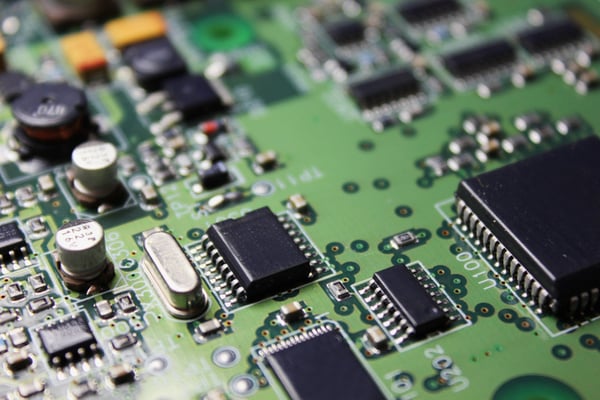In today’s fast-paced and competitive market, finding reliable turnkey manufacturers is crucial for businesses aiming to streamline their production processes and maintain high-quality standards. This article will guide you through the essential steps and considerations in locating and partnering with trustworthy turnkey manufacturing providers.

Understanding Turnkey Manufacturing
Before diving into the process of finding a reliable turnkey manufacturer, it’s important to understand what turnkey manufacturing entails. Essentially, turnkey manufacturing refers to a solution where the manufacturer handles all aspects of production, from initial design to the final product. This approach allows businesses to focus on other core activities while ensuring that their manufacturing needs are met efficiently.
Benefits of Turnkey Manufacturing
Choosing a turnkey solution offers numerous benefits, such as reduced overhead costs, improved product quality, and faster time to market. For more insights on how turnkey solutions can benefit your business, check out our article on how turnkey helps reduce overhead.
Identifying Your Manufacturing Needs
Before you start searching for a turnkey manufacturer, it’s essential to clearly define your manufacturing needs. Consider factors like the type of product, production volume, quality standards, and budget constraints. Having a clear understanding of your requirements will help you identify manufacturers that are well-suited to meet your specific needs.
Researching Potential Manufacturers
Once you have a clear understanding of your manufacturing needs, it’s time to start researching potential turnkey manufacturers. Begin by searching online for manufacturers that specialize in your industry. You can also use industry-specific directories and trade shows to gather information about potential partners. Don’t forget to check their reputation and experience by reading reviews and testimonials from other businesses they have worked with.
Evaluating Manufacturer Capabilities
Not all manufacturers are created equal, and it’s crucial to evaluate their capabilities before making a decision. Assess factors like their production capacity, technology and equipment, quality assurance processes, and ability to meet deadlines. Additionally, evaluate their communication skills and willingness to collaborate, as these are critical factors in ensuring a successful partnership.
Assessing Quality Standards
Quality is a critical aspect of any manufacturing process. Ensure that the manufacturer adheres to industry-specific quality standards and certifications. You can learn more about how turnkey PCB assembly improves quality in our article on how turnkey PCB assembly improves quality.
Establishing Clear Communication
Effective communication is the backbone of any successful partnership. Establish clear lines of communication with your potential manufacturer and ensure that they are responsive to your inquiries and requests. Regular updates and open dialogue will help prevent misunderstandings and keep the project on track.
Negotiating Terms and Agreements
Once you’ve identified a suitable turnkey manufacturer, it’s time to negotiate the terms and agreements of your partnership. Discuss production timelines, pricing, payment terms, and any other relevant details. Make sure to draft a comprehensive contract that outlines all the agreed-upon terms and conditions to protect both parties.
Building a Long-Term Partnership
Building a long-term partnership with a reliable turnkey manufacturer can significantly benefit your business. Focus on maintaining a positive and collaborative relationship by providing feedback, addressing concerns promptly, and celebrating successes together. A strong partnership will lead to improved efficiency and better overall outcomes.
Monitoring and Evaluating Performance
Regularly monitor and evaluate the performance of your turnkey manufacturer to ensure they continue to meet your expectations. This will help you identify areas for improvement and maintain high-quality standards. For more information on how turnkey manufacturing ensures consistent product quality, visit our article on how turnkey ensures consistent product quality.
Leveraging Industry Resources
Take advantage of industry resources and networks to stay informed about the latest trends and advancements in turnkey manufacturing. Join industry associations, attend conferences, and participate in online forums to connect with other professionals and gain valuable insights.
Staying Flexible and Adaptive
The business landscape is constantly changing, and it’s essential to stay flexible and adaptive. Be open to new ideas and approaches, and be willing to adjust your strategies as needed. This will help you stay competitive and ensure that your partnership with the turnkey manufacturer remains strong and beneficial.
Conclusion
Finding a reliable turnkey manufacturer is a crucial step in ensuring the success of your business. By understanding your manufacturing needs, researching potential partners, evaluating their capabilities, and establishing clear communication, you can build a strong and productive partnership. Remember to continuously monitor performance and stay flexible to adapt to changing circumstances. For more information on the differences between turnkey PCB and consignment PCB assembly, visit this external resource.

FAQs
What is turnkey manufacturing?
Turnkey manufacturing is a solution where the manufacturer handles all aspects of production, from initial design to the final product.
Why choose a turnkey manufacturer?
Choosing a turnkey manufacturer offers benefits such as reduced overhead costs, improved product quality, and faster time to market.
How can I ensure a manufacturer is reliable?
Ensure a manufacturer is reliable by researching their reputation, evaluating their capabilities, assessing their quality standards, and establishing clear communication.


